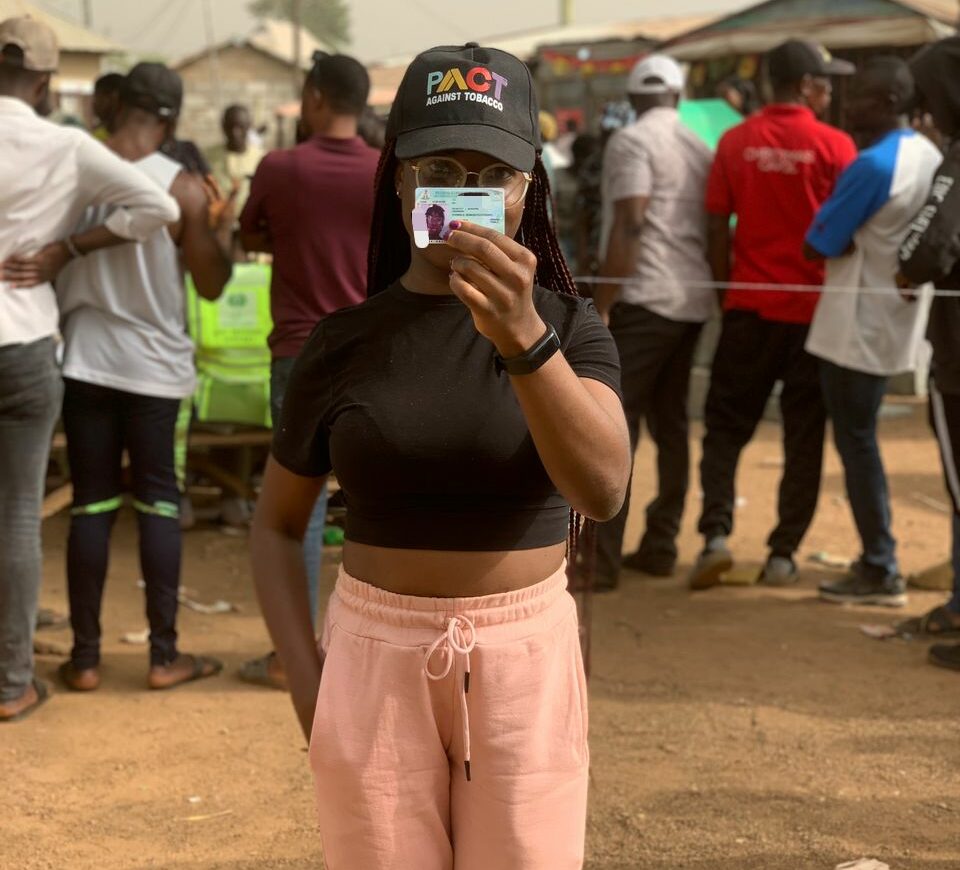
News
I Voted
Play audio version
DJP Fellow Benedicta Oyèdayọ̀ Oyèwọlé Documents the Challenges Nigerians with Disabilities Faced Voting in February’s Elections
March 5, 2023
ABUJA, Nigeria — During the 2015 elections in Nigeria, I was in my last year of secondary school and not old enough yet to vote. But that was the year my electoral participation was unleashed. Many people in my hometown exhibited great political apathy, asking themselves, “What would my one vote do?” This mindset was washed away from me by my economics teacher, Mr. Adedokun. He used half an hour of every class to discuss politics, argumentatively and factually. I grew enthusiastic about taking part in the elections. I questioned if people with disabilities were prohibited from performing their civic duty or if the civic obligation only applied to people who were not disabled because I did not see any people with disabilities at the polls or even running for office.
In a cramped waiting room of my principal’s office, students watched the Independent National Electoral Commission (INEC) collate and announce the results of the general election, with a sign language interpreter in a boxed corner of the television. I was somewhat convinced that the election was for everyone, including persons with disabilities.
The Deprioritzation of Voters with Disabilties
A few years later, close to the 2019 general elections, I celebrated my 18th birthday and was now of voting age. My sister and I went to INEC’s local government early on a Wednesday morning in 2018 to register for a permanent voters card (PVC). To our astonishment, we were numbers 315 and 316 on the list, respectively, while there were only about 30 other people around. We had to leave that day and keep returning. The deprioritization of persons with disabilities caught my attention throughout this process. The PVC form did not include any information about requirements for reasonable accommodations for people with disabilities in their polling units.
In 2019, I participated in the #VoteYourFuture campaign organized by the ONE Campaign at my institution because I was excited about the upcoming elections. During the panel discussion, I emphasized the significance of giving young people with disabilities priority in conversations about an inclusive future. Unfortunately, because I was studying in Ilorin, Kwara State, and my polling place was in Ibadan, Oyo State, I was unable to vote in those elections either.
Despite this, I followed with interest Lois Auta, an unstoppable force and a woman with a disability who ran for a seat in the House of Representatives. She faced significant pushback and discrimination but persisted with her campaign. Although she lost, it geared me up to know that women with disabilities, when given the proper access, support, and platform, can vie for political positions in Nigeria.
I relocated to Abuja in 2022, which required me to file for a voter transfer so I could cast my ballot in my new state. Abuja is the Federal Capital Territory of Nigeria. Surprisingly, I was able to relocate easily to a polling location close to my home using INEC’s website.
Once I received my permanent voter card with my new state and voting place, I was prepared to cast my ballot. My excitement as a first-time voter changed when I learned that I had been transferred to a less congested polling location. This newer location was not close to my home, and it would be difficult to find transportation there on election day. Additionally, because of the country’s cash crisis, I had no money to use for transportation until my neighbor, another young excited voter, gave me ₦500.
Election Day
On February 25, my mother called me early on the morning of the much-anticipated presidential, Senate, and House of Representatives elections to get me ready to vote. I walked a short distance before getting on a bike to get to my polling place, which I was able to find using Google Maps on INEC’s website. After I waited for almost two hours, the electoral officials arrived. Although there was some incorporation of preferences for people with disabilities in my polling unit, people with disabilities still had a difficult time navigating the demanding voting process. Without my friend, I wouldn’t have been able to get around independently as a person with cerebral palsy with limited mobility. The accreditation process was rigorous, and without the physical strength needed to pull through, I had to lean on my friend for support throughout the process. The voting structure and location were not ones I could navigate independently either. I can say, without my friend, I would not have been able to vote. A disability-friendly election framework was absent.
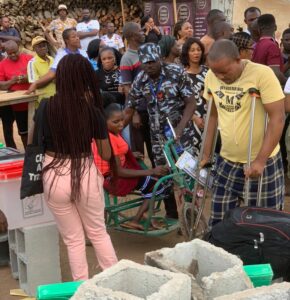
Voter turnout in Nigeria has fallen for years, from 65 percent in 2003 to 34 percent in 2019. Ignoring the fact that persons with disabilities are not able to vote because of a lack of access and inclusivity in Africa’s largest democracy, politicians and analysts frequently attribute the drop solely to violent elections and voter apathy. In 2022 Nigeria did pass the Electoral Act Amendment Bill into law, and it requires INEC to take “reasonable steps” to support persons with disabilities before, during, and after the voting process. The commission said it would provide people with disabilities with assistive materials, such as magnifying glasses, Braille ballots, and pictorial election instructions, but in my polling unit, none of these was available from the time I registered to vote until I cast my ballot. Election observers noted a similar trend across the country. It’s no wonder, then, that out of the approximately 9,518,000 validly registered Nigerian voters, only 85,362 are people with disabilities, according to INEC.
The engagement of persons with disabilities in the democratic process lays the groundwork for mainstreaming people with disabilities into all areas of society.
Benedicta Oyèdayọ̀ Oyèwọlé
For me, the election served as a reflection of how Nigerians view people with disabilities, and this marginalization extends to other spheres of society. While I was able to vote with the help of a friend, less the 1 percent of people with disabilities who registered for PVCs were able to complete the voting process. I was not given an INEC-designated feedback form for persons with disabilities, and when I asked INEC officials at my polling unit, they did not know it existed.
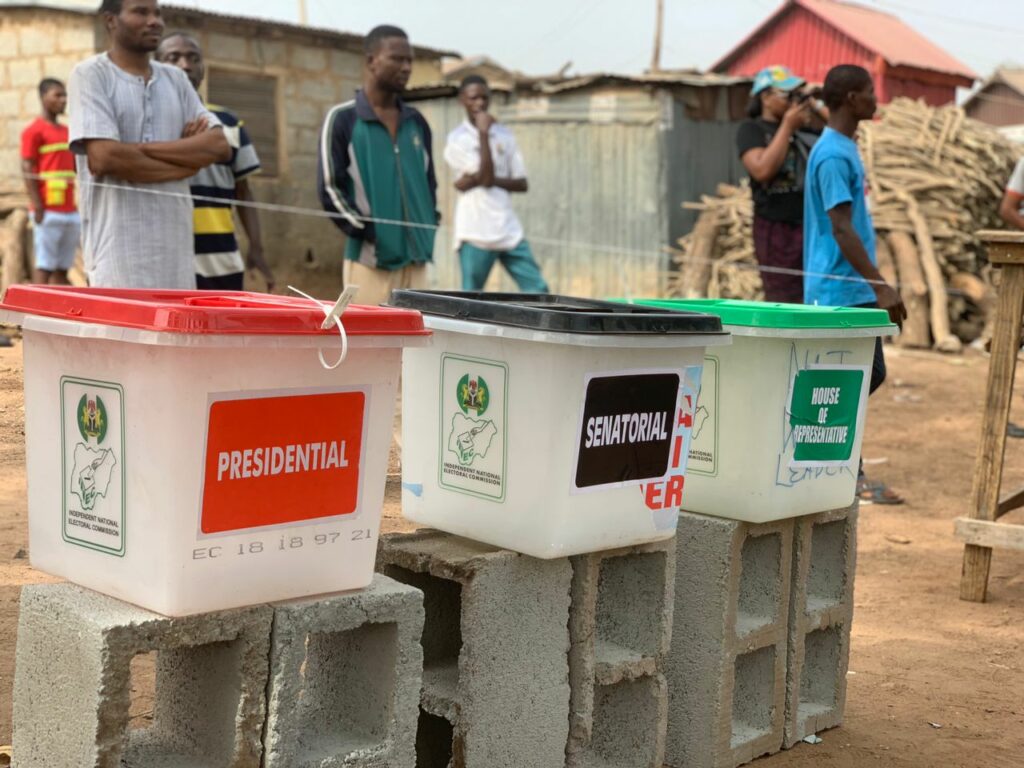
As stated in Article 29 of the Convention on the Rights of Persons with Disabilities, which Nigeria ratified in 2007, persons with disabilities should be able to participate effectively and fully in political life on an equal basis with others. But this was not entirely the case with the general elections on February 25. The engagement of persons with disabilities in the democratic process lays the groundwork for mainstreaming people with disabilities into all areas of society. People with disabilities should be able to safely participate in civic and political life on an equal basis. I hope that more people with disabilities will be able to participate in the voting process without obstacles in the upcoming gubernatorial and House of Assembly elections on March 18.
DJP Fellow Benedicta Oyèdayọ̀ Oyèwọlé is an intersectional feminist passionate about disability and women’s rights. She currently works as a program officer of diversity and inclusion at the Women’s Health and Equal Rights (WHER) Initiative, a nonprofit focused on promoting the rights and well-being of lesbian, bisexual, and queer (LBQ) women in Nigeria.
@2022 WHER. All rights reserved.
News From the Global Frontlines of Disability Justice
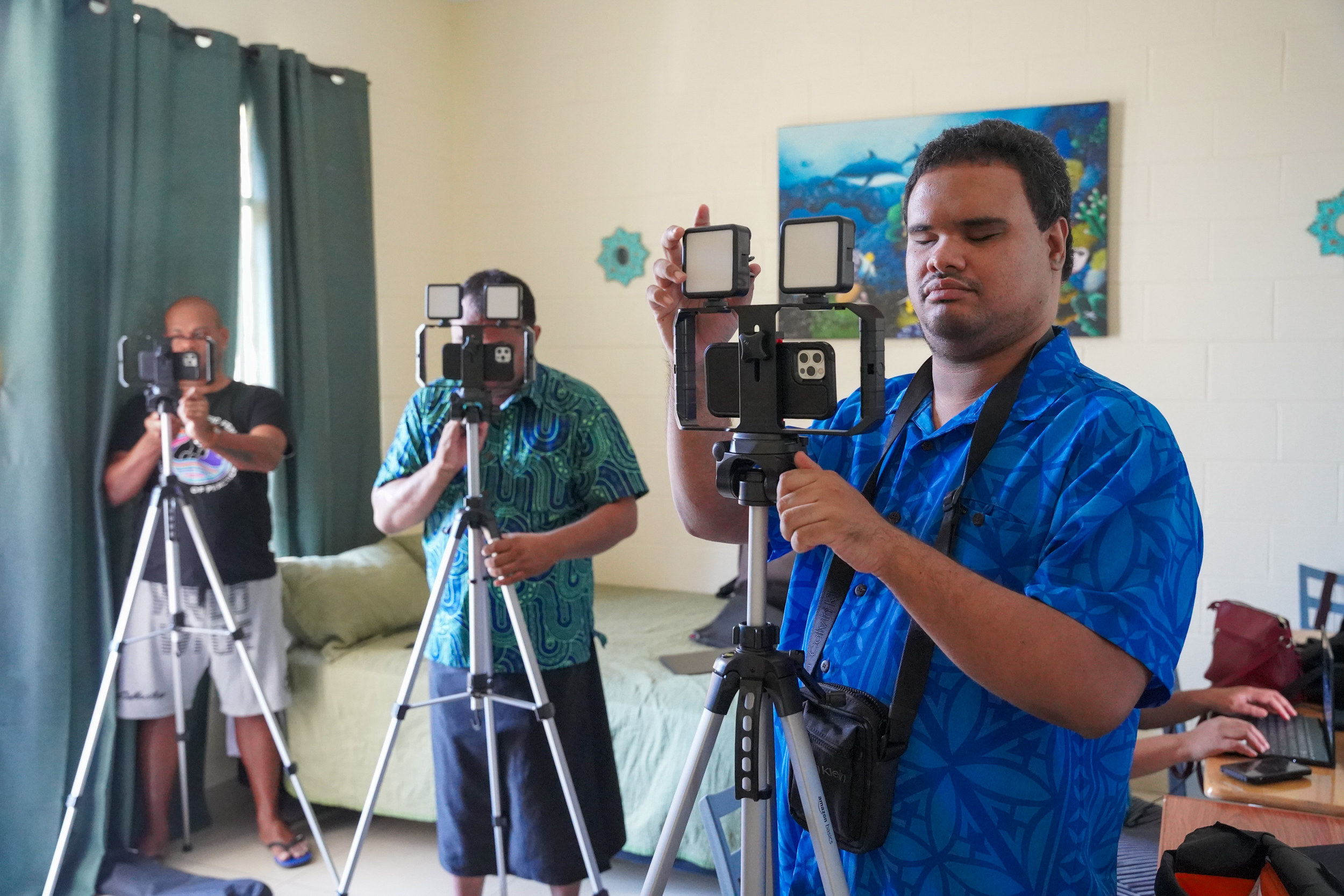
Capturing Vision Through Sound and Touch
Last summer, the DJP trained Indigenous activists with disabilities from the Pacific on the iPhone camera to create a documentary series on disability and climate change. With VoiceOver, the iPhone provides image descriptions for blind and low-vision filmmakers and offers other accessible features. “If you think about it, it doesn’t make sense for a blind person to use a camera,” says DJP filmmaker Ari Hazelman. “The iPhone gives you more avenues to tell your story in a more profound way as a blind person.”
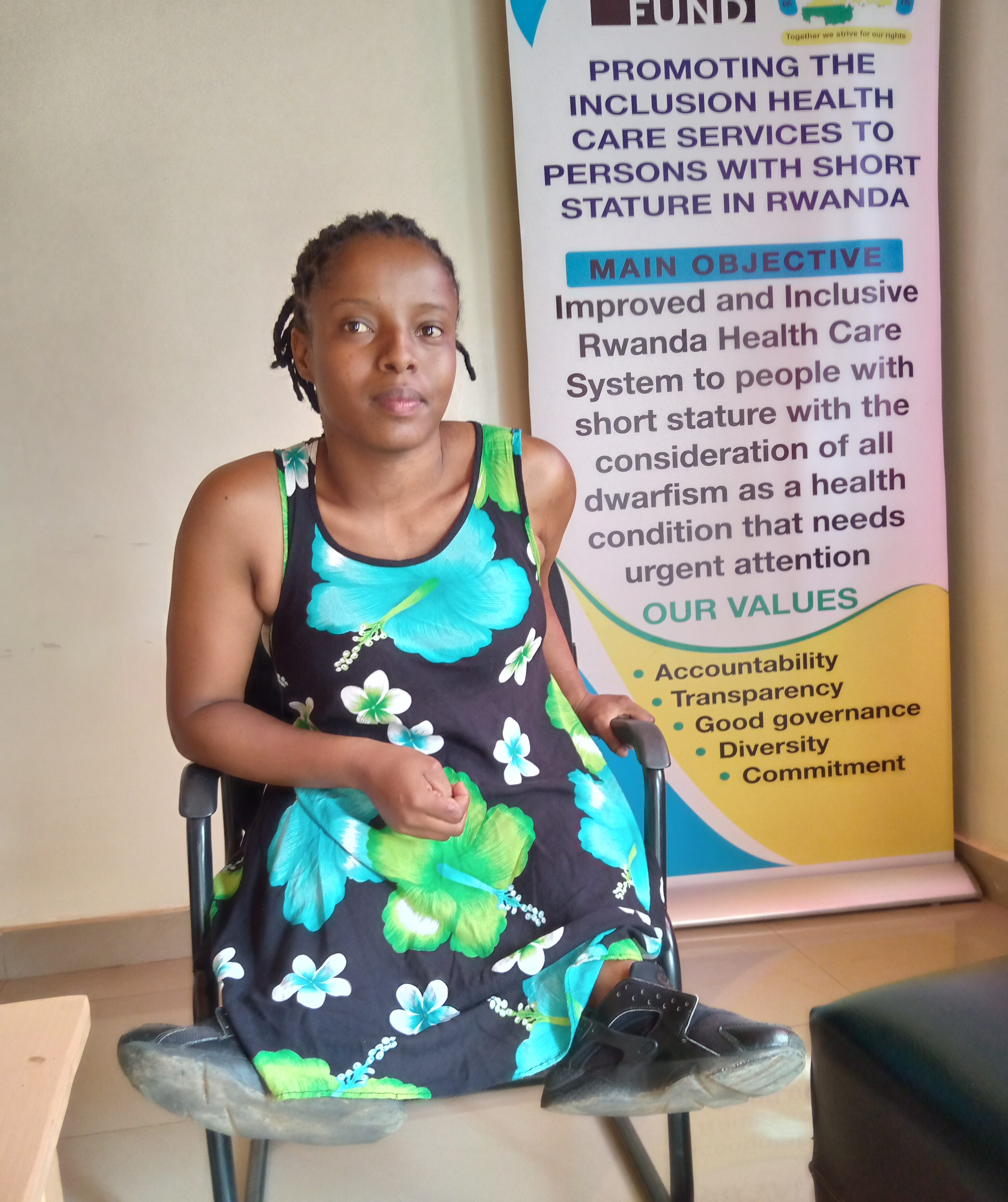
Work for All
The We Can Work program equips young Rwandans with disabilities to navigate barriers to employment through education, vocational training, and soft skills development. By fostering inclusive workplaces and advocating for policy changes, the program aims to reduce poverty and promote economic independence. Participants like Alliance Ukwishaka are optimistic that the program will enable them to achieve their dreams and showcase their potential. The initiative is part of a larger effort to support 30 million disabled youth across seven African countries.
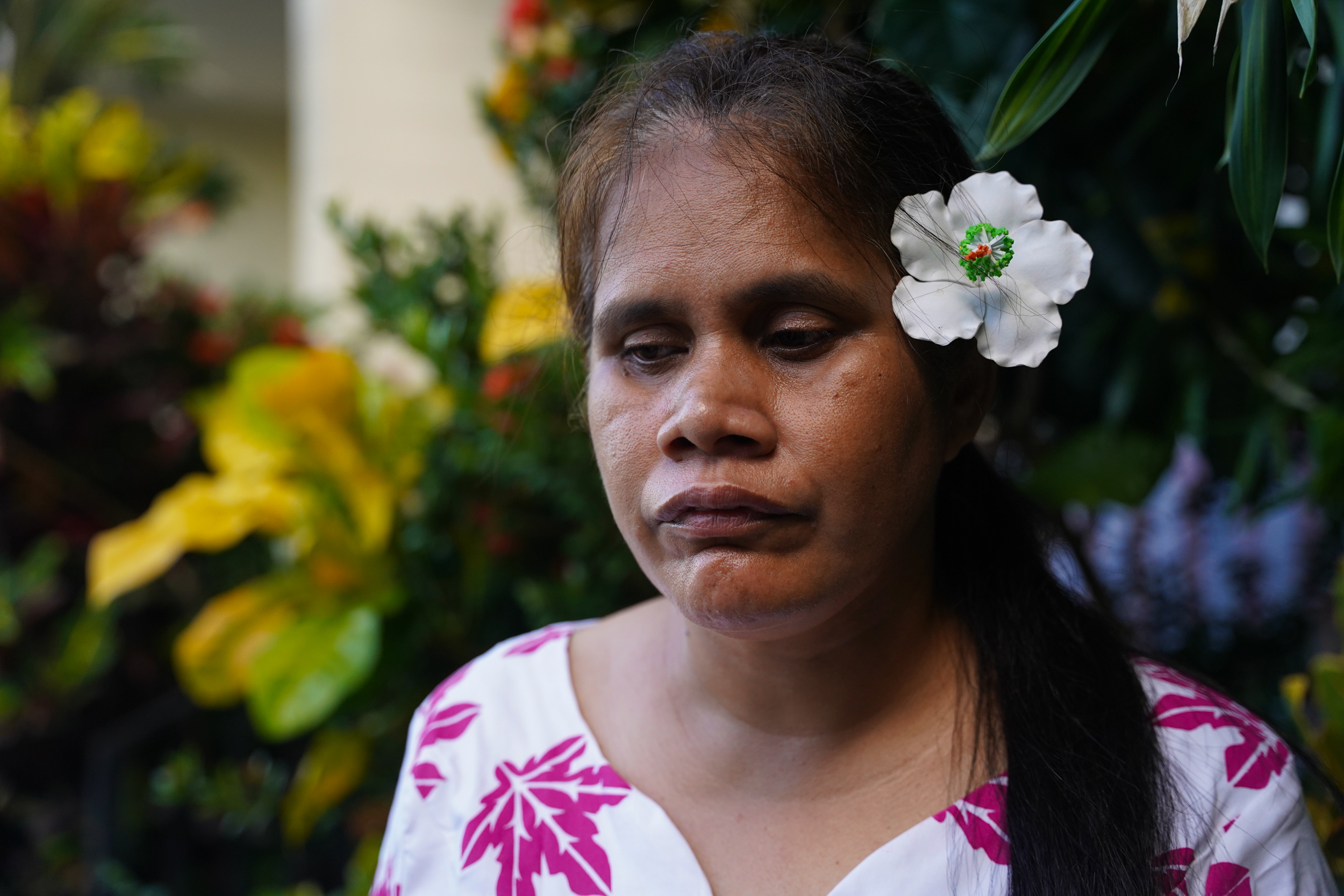
Global Recognition
Faaolo Utumapu-Utailesolo’s film “Dramatic Waves of Change” has been named a finalist in the Focus on Ability International Short Film Festival. The film, completed during a Disability Justice Project workshop in Samoa, highlights the impact of climate change on people with disabilities in Kiribati. Utumapu-Utailesolo, who is blind, used an iPhone with accessibility features to create the film. “Do not leave people with disabilities behind when [you] plan, implement, and monitor programs regarding climate change and disaster,” she says. Her achievement is a testament to the power of inclusive filmmaking.
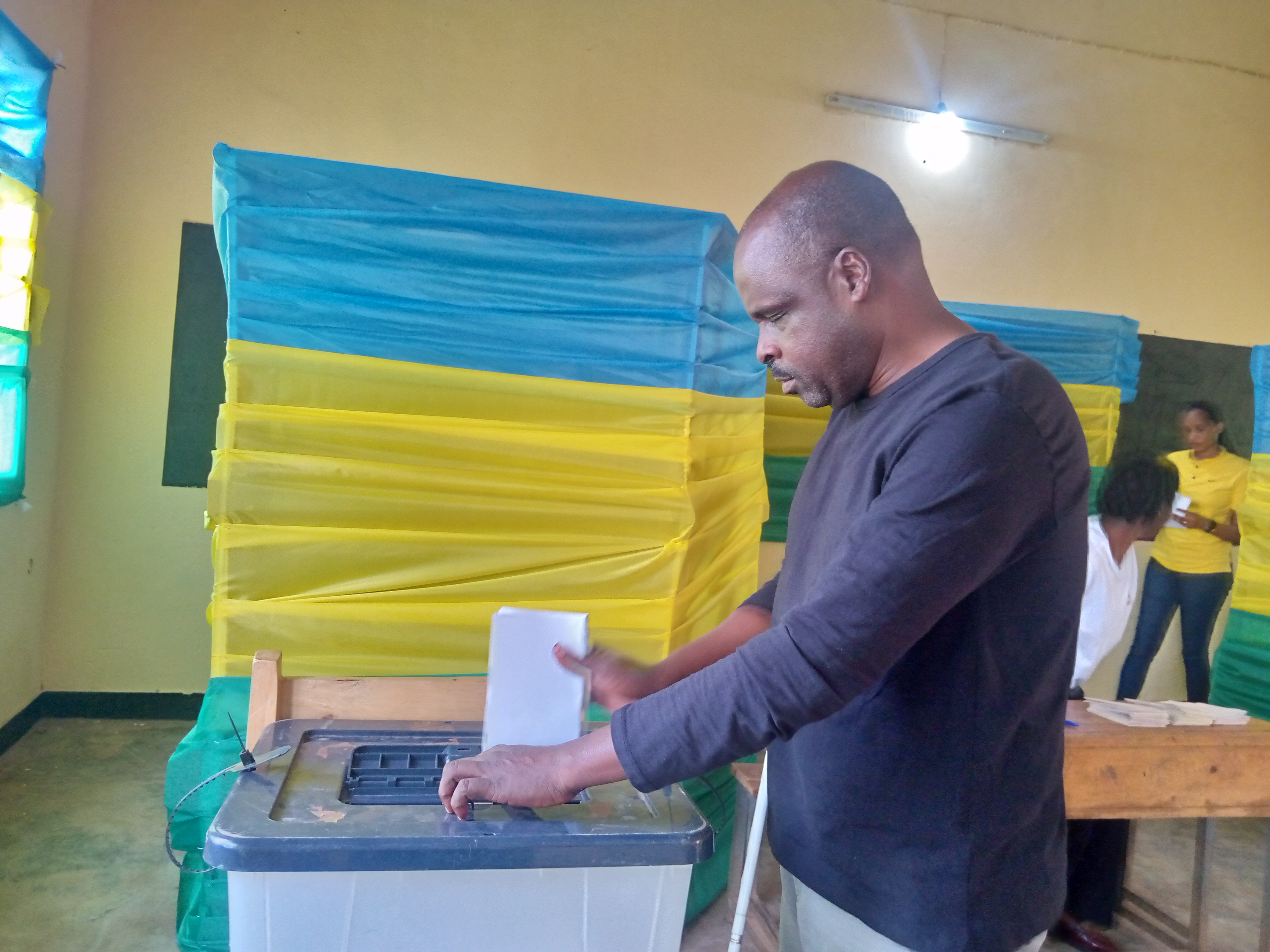
Advancing Democracy
Rwanda has made significant progress in making its elections more accessible, highlighted by the July 15 general elections where notable accommodations were provided. This was a major step forward in disabled Rwandans’ quest for equal rights and participation. “You cannot imagine how happy I am, for I have voted by myself and privately as others do accessibly,” says Jean Marie Vianney Mukeshimana, who used a Braille voting slate for the first time. “Voting is a deeply emotional and meaningful experience for a person with any disability in Rwanda, reflecting a blend of pride, empowerment, and hope.”
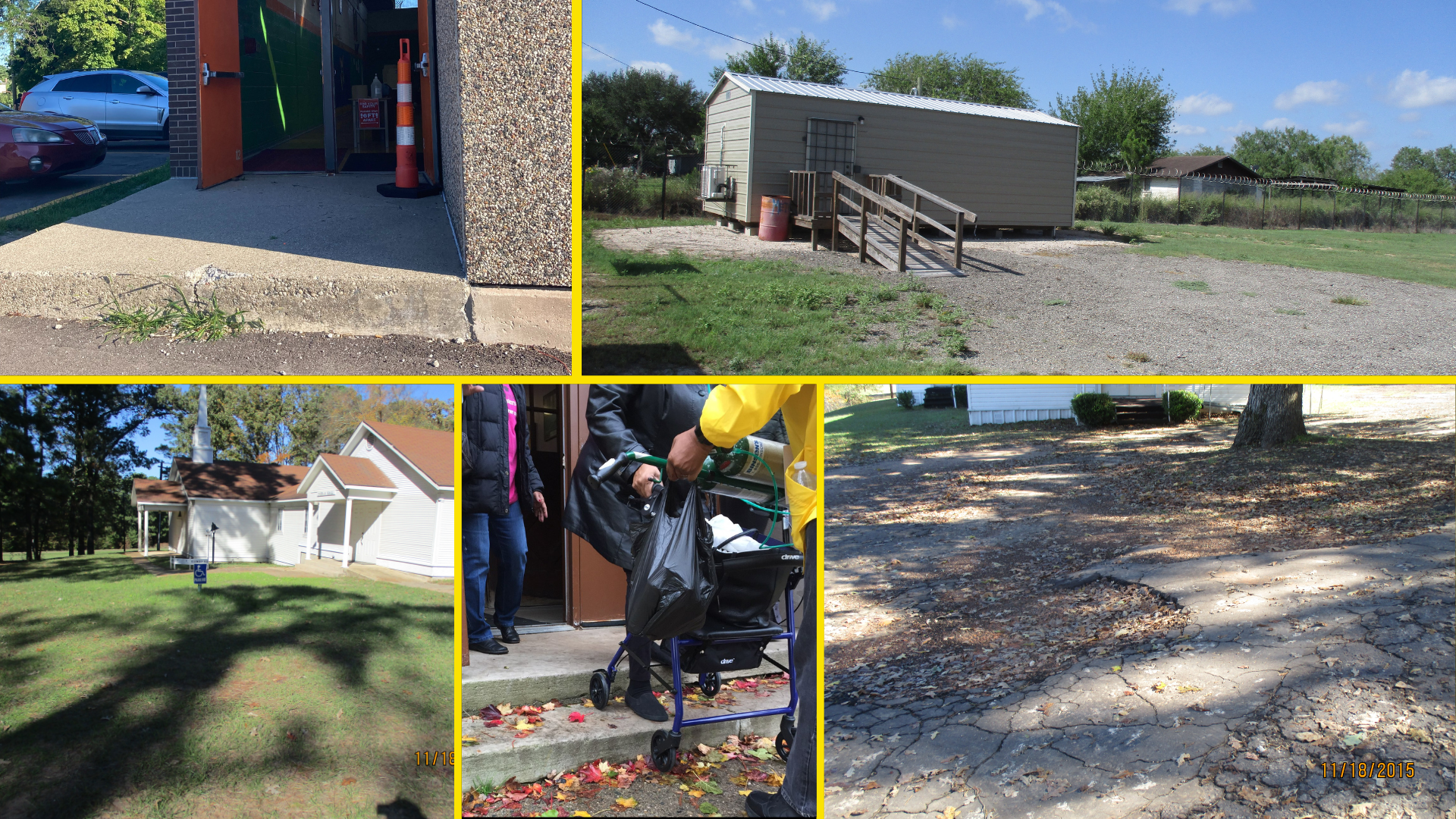
Barriers to the Ballot
Despite legislation like the Americans with Disabilities Act, barriers at the polls still hinder — and often prevent — people with disabilities from voting. New restrictive laws in some states, such as criminalizing assistance with voting, exacerbate these issues. Advocacy groups continue to fight for improved accessibility and increased voter turnout among disabled individuals, emphasizing the need for multiple voting options to accommodate diverse needs. ““Of course, we want to vote,” says Claire Stanley with the American Council of the Blind, “but if you can’t, you can’t.”
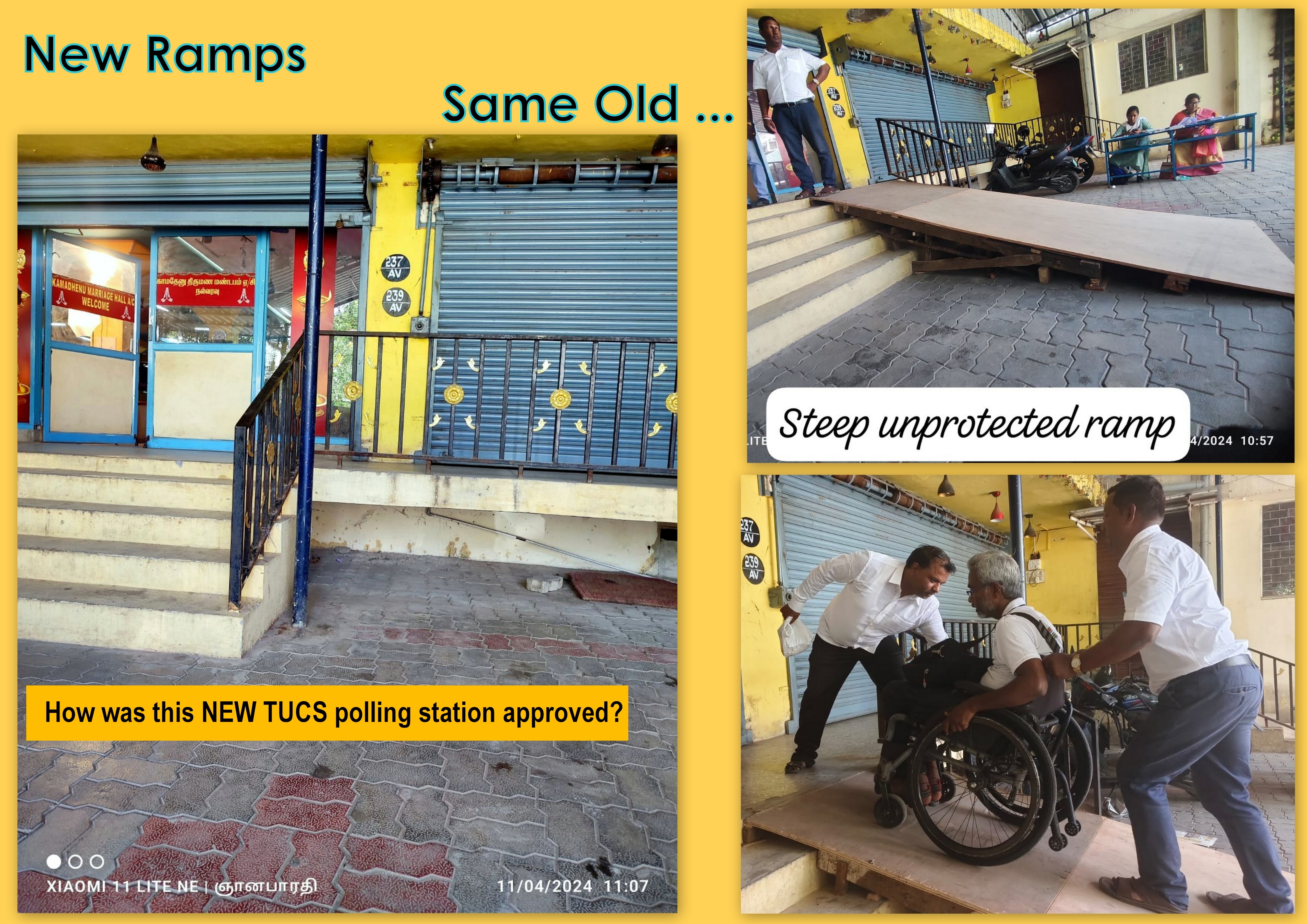
Democracy Denied
In 2024, a record number of voters worldwide will head to the polls, but many disabled individuals still face significant barriers. In India, inaccessible electronic voting machines and polling stations hinder the ability of disabled voters to cast their ballots independently. Despite legal protections and efforts to improve accessibility, systemic issues continue to prevent many from fully participating in the world’s largest democracy. “All across India, the perception of having made a place accessible,” says Vaishnavi Jayakumar of Disability Rights Alliance, “is to put a decent ramp at the entrance and some form of quasi-accessible toilet.”